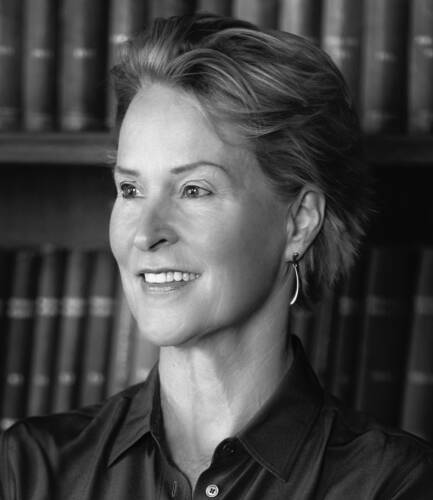Frances H. Arnold, Ph.D.
RECIPIENT OF THE HONORARY DEGREE

With a nonconformist spirit, an inclination to try new things, and confidence to overcome challenges, Frances Arnold has opened new realms of biological catalysis. By exploiting the principles of evolution, she has harnessed its power to make improved and novel enzymes, some of which perform reactions unknown in the natural world. The process that she invented has delivered agents that enable the environmentally clean manufacture of biofuels, pharmaceutical agents, diagnostic tools, and consumer and agricultural products.
As a teenager, she chose to leave home and live on her own in Pittsburgh rather than agree to her parents’ request that she attend school regularly and stop hitchhiking to antiwar protests. Despite her terrible attendance record, she was admitted to Princeton University. In 1979, she graduated with a bachelor’s degree in in Mechanical and Aerospace engineering. She continued to the Chemical Engineering program at the University of California, Berkeley, and earned a Ph.D. in 1985.
While in graduate school, she became captivated by the possibility of engineering proteins. The existing approach, in which scientists predicted amino-acid changes that they hoped would deliver desired effects, often fell short. Rather than trying to decipher nature’s design rules, Dr. Arnold focused on function. She aimed to generate enzymes that possess beneficial properties without needing to know in advance what alterations to make.
She joined the Caltech faculty in 1987 and embarked on her quest. By introducing random mutations into an amino-acid sequence and then screening for proteins that can perform the chemical feat of interest, she developed a method called directed evolution, which reliably produces enzymes with a vast array of capabilities and applications.
Dr. Arnold co-chairs the President’s Council of Advisors on Science & Technology (PCAST), and through its activities, she can reach even more broadly to apply science for the good of humanity and the planet. She is currently the Linus Pauling Professor of Chemical Engineering, Bioengineering, and Biochemistry at Caltech. Her many honors include the 2018 Nobel Prize in Chemistry, the National Medal of Technology and Innovation, the Millennium Technology Prize, and the Charles Stark Draper Prize for Engineering. She is a member of the U.S. National Academies of Engineering, Sciences, and Medicine and a foreign member of the U.K Royal Society.